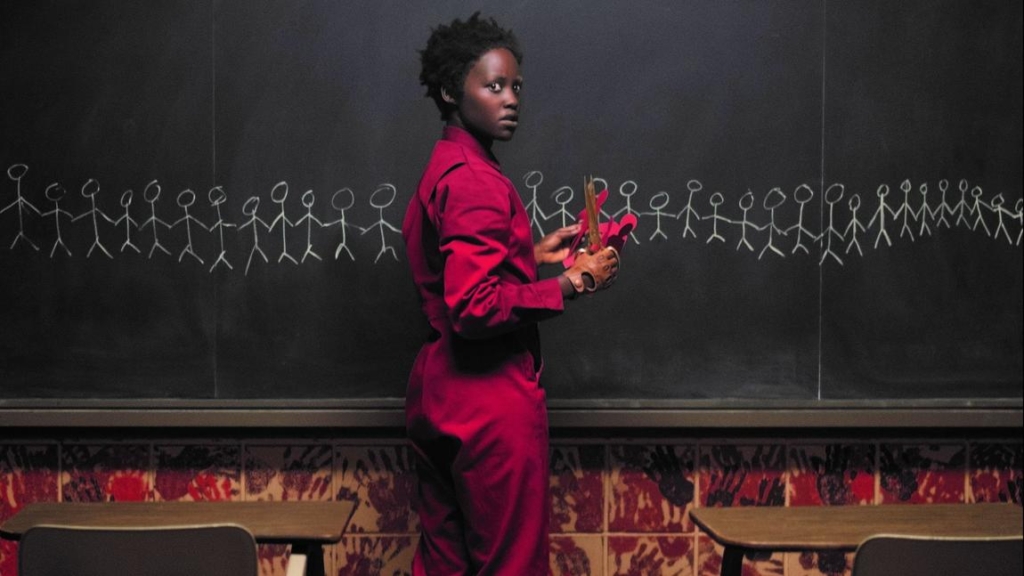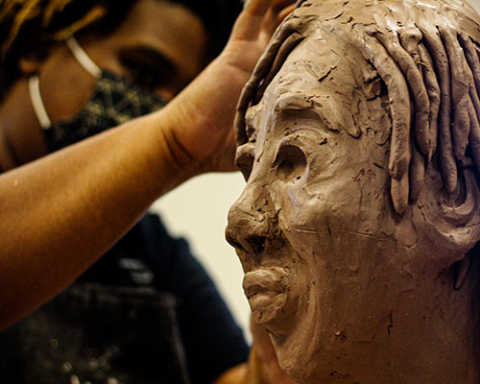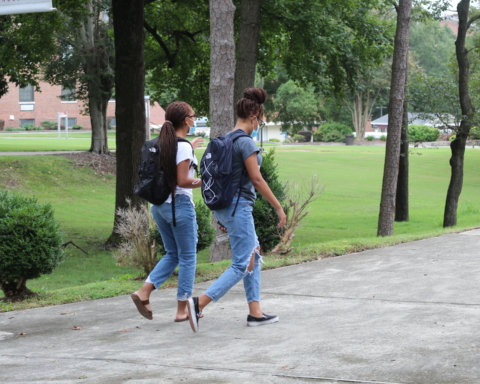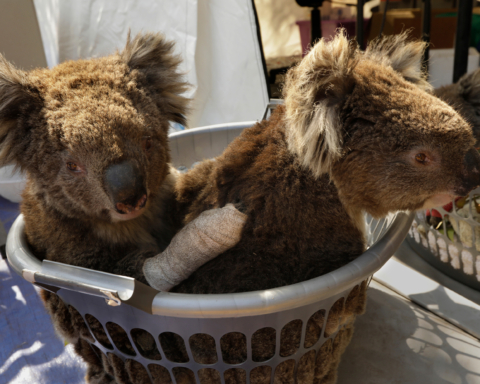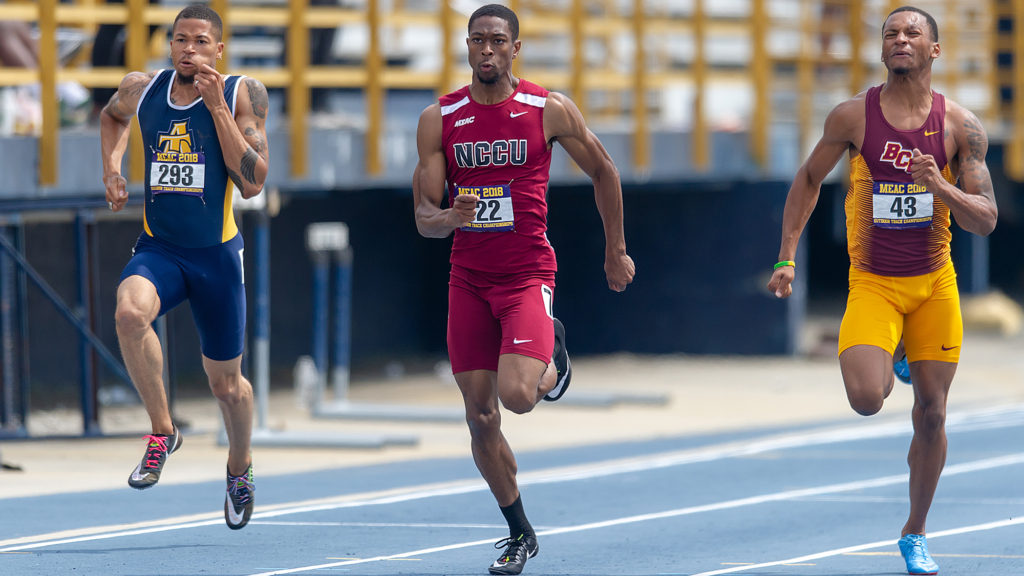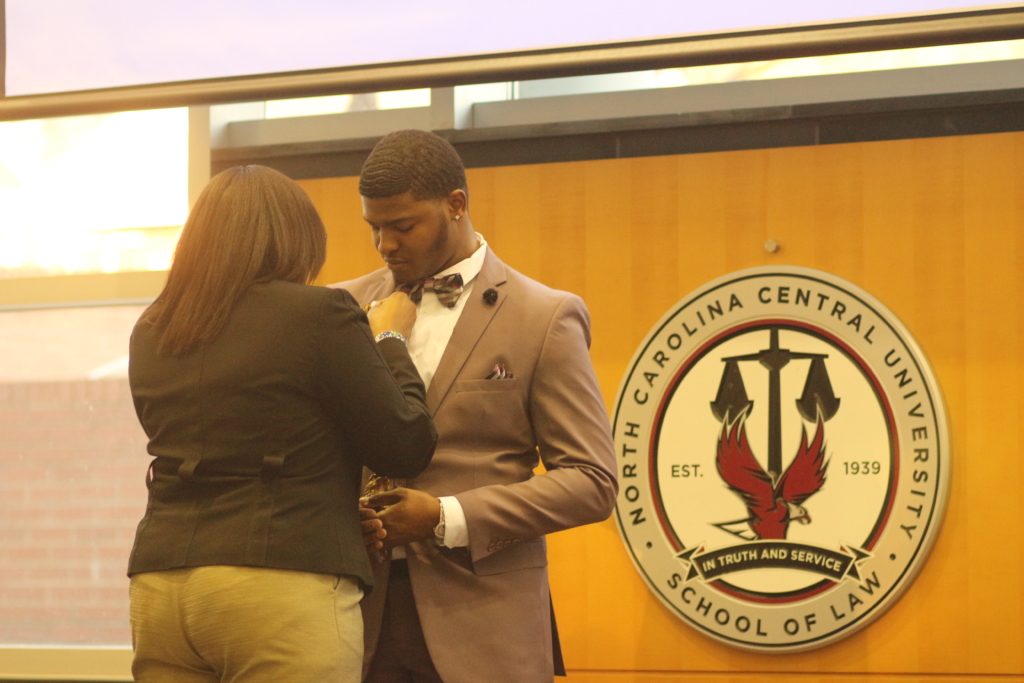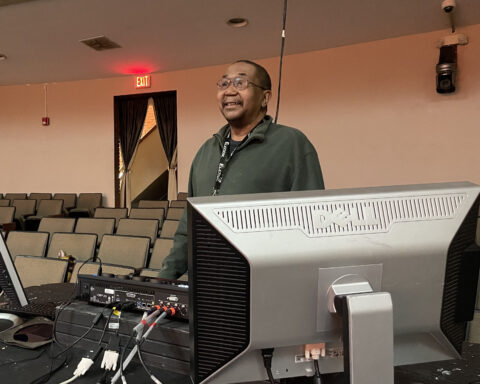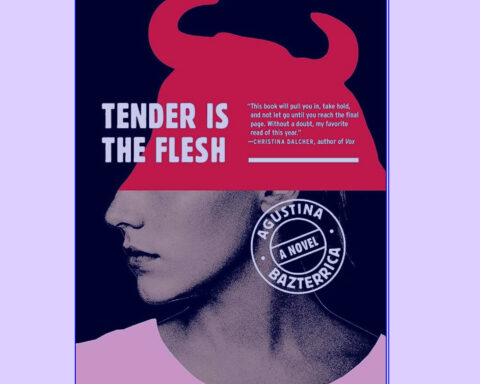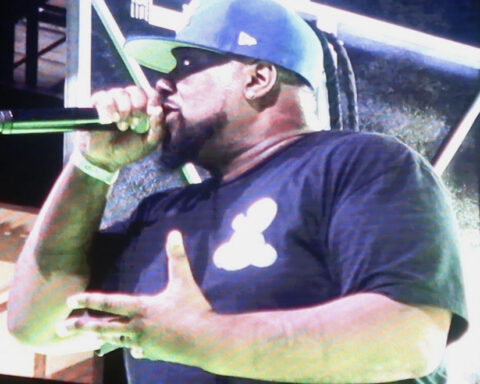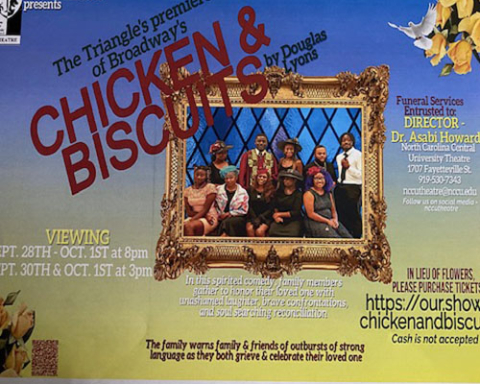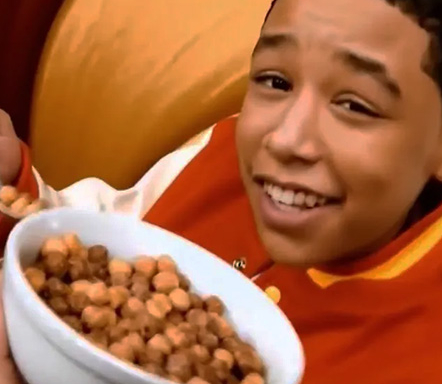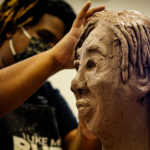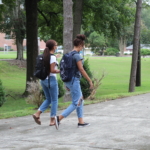Jordan Peele’s “Us” begins so spectacularly well, and sustains its game of doubles so cleverly for most of its two hours, it’s an unusual sort of letdown when the story doesn’t quite hang together and “deliver” the way Peele managed with his 2017 debut feature, “Get Out.”
That movie sent people out of the theater with rattled nerves and a pleasurably uneasy catharsis; the new film’s culminating scenes are roughly equal parts “wow!” and “wow?”
And that shouldn’t deter you in the slightest.
Seriously, it shouldn’t. The best, strangest images and ideas in “Us” are all you need to believe in Peele as a second-time feature filmmaker of terrific, happily risky instincts. He knows when to go for the throat, and when to let things simmer, or play out in a medium shot, at an eerie remove. Even when the characters could use a little more on the page, he give his actors room to do their work.
In “Us” Lupita Nyong’o, particularly, is gripping as hell. The “12 Years a Slave” Oscar winner inhabits two distinct roles that blur and refract each other’s circumstances in uniquely scary ways. With routine horror films destined for a large audience (I’d put the Stephen King adaptation “It” in that category), I tend to get stupidly cavalier about spoiler issues. With this one, I went in as narratively uninformed as the movie’s marketing and the film world would allow. You should, too.
The writer-director works from an idea formulated, among other places in popular culture, in the 1960 “Twilight Zone” episode “Mirror Image,” the one where Vera Miles encountered her own doppelganger in a bus terminal. (Peele’s “Twilight Zone” anthology reboot premieres April 1 on CBS All Access.) Peele opens with a few sentences on the screen about the miles and miles of tunnels underneath the surface of America, many of which have “no known purpose at all.” The prologue takes place in 1986, a time when “Hands Across America” (as we see on a TV set) was setting up a benefit hand-holding spanning the nation, or trying to.
It’s nighttime at the beachfront amusement park in Santa Cruz, Calif. A little girl (Madison Curry) wanders around with her parents, glancing at the other visitors. At one ball-toss game, her father wins her a prize: a Michael Jackson “Thriller” T-shirt. (Some directors have all the luck.) The girl wanders off on her own, into a hall of mirrors, turns a corner, spies an exit sign, but encounters another little girl. We find out what happened between these two later; as a table-setter, photographed by cinematographer Mike Gioulakis in rich, bright but utterly menacing colors, the prologue’s simple perfection.
The movie jumps ahead to the present day. Now grown, Adelaide (Nyong’o), genial, conflict-averse Gabe (Winston Duke, Nyong’o’s fellow “Black Panther” alum) and their children (Shahadi Wright Joseph and Evan Alex) are returning to their lakeside vacation home. Adelaide, who has never talked to Gabe about what happened to her as a child, is subtly freaking out about Gabe’s plans to meet up at the beach with their sort-of friends. “Us” begins exploring its ideas of doppelgangers and doubling (the friends, the Tylers, played by Elisabeth Moss and Tim Heidecker, have a pair of snotty teenage daughters).
No spoiler issue here: The ads for “Us” show you what happens when Adelaide and family, back at the lakeside home at night, spy a family of four in their driveway, all in crimson jumpsuits. They are versions of themselves. From there Peele establishes these four scissors-wielding not-quite-humans as the “shadow” editions of Adelaide and company, known as “the Tethered.”
Nyong’o’s physical and vocal work as Adelaide’s doppelganger, “Red,” is nothing short of staggering, her voice guttural and seemingly blood-clogged, her movements skittery and unpredictable but weirdly precise, like a dancer. “Us” sets up its essential backstory beautifully, since we hear it from Nyong’o, in Peele’s best-written passage.
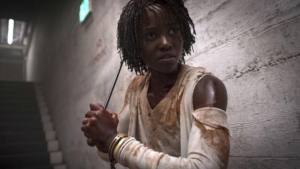
Things become more complex and murkier at that point. Home invasion thriller; zombie attack, or a sly variation thereof; darkly satirical play on societal togetherness and equality where not enough exists; Peele wants “Us” to have it all. To a large degree he succeeds. There are cryptic details, such as the wall of caged rabbits in an early transitional sequence. The doubling concept spins variation after variation, such as a homeless man wielding a sign reading “Jeremiah 11:11,” referring to inescapable disaster, as inevitable as a human shadow. When a second family of doppelgangers enters the story, Peele has the good sense to depict the resulting bloody mayhem (the movie has many more killings than “Get Out” did) at a clinical distance, all the more blood-curdling for its lack of close-ups. The terrific, blessedly subtle score comes from composer Michael Abels, who also did “Get Out.”
On first viewing, I’d say the last 20 minutes of “Us” makes the mistake of over-explaining some notions introduced earlier on, as well as stopping dead to introduce new, somewhat opaque aspects of the movie’s shadow world. I don’t know, or care, really, how any of this affects the box office. So much of “Us” does so much right, I’m eager to mess with it again, and have it mess with me.
As for the rabbits: It’s clear Peele has a thing about rabbits, judging from insidious “Run Rabbit Run” jingle in “Get Out,” and now “Us.” Does he make a strong enough case for their presence and prominence here? Maybe not. No biggie. Peele, who came out of sketch and improv comedy and retains his wit even when he’s frying our nerves, has made his second fascinating thriller, this one closer to full-on and wonderfully suggestive horror.
“Us” — 3.5 stars
Story by Michael Phillips
Chicago Tribune (Tribune News Service)

